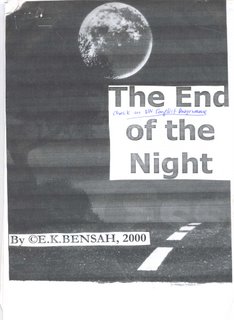Crystal-Clear Policies from an All-Too Predictable US of A

There is no need for glazed eyes. This is a black-and-white issue.
The Europeans want their own European defence policy; the Americans want their own one--independent of Nato.
I don't know about you, but I am not so keen, after the Iraq débacle of 2003, on seeing anything else that would further augment the power of the United States.
A missile defence shield. For what?
It was as far back as October 2003, when the crisis in Iraq was at its apogee, when a Brussels-based journalist Shada Islam, writing in Yale Global Online, maintained that the Europeans want to begin to speak with one voice firstly, with a European-appointed Foreign Minister; and secondly, with a mutual defence clause.
As we know, the Europeans largely rejected the constitution in 2005, with the Dutch refusing it in big-style, prompting some serious consternation and tectonic shifts in Europe.
With the Franco-Dutch rejection of that constitution, the proponents of a European Defence Policy, or better still a European Defence Community, is pretty much on the rocks--or is it?
As far as the Europeans are concerned, a policy independent and complementary to NATO is what is best needed. When Nicholas Burns, the US envoy to Nato said in October 2003 that this independence represented "one of the greatest dangers to the transatlantic relationship", you could begin to sense the ideological rejection of the European's independence.
That said, you don't need to be a rocket science to see in 2007, with the US keen on a missile defence shield that would "call for a radar tracking station to be built in the Czech Republic and for 10 interceptor missiles to be placed in Poland", that the Us is not just being hypocritical, but satiating its ever-growing appetite.
I'm thinking whether this proposal to establish itself in the Balkans area has anything to do with needing to be close to the Russians, who are now using what one can only call "energy diplomacy" in that part of the world?
With the US, anything is certainly possible.
Labels: Dutch, energy policy, EU, EU constitution, europeans, French rejection, nato, russia, russia energy, superpower, usa







0 Comments:
Post a Comment
Subscribe to Post Comments [Atom]
<< Home